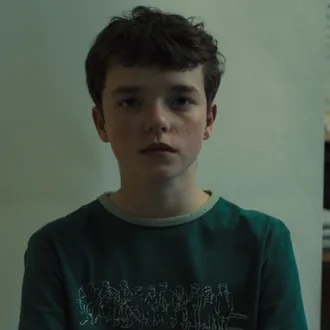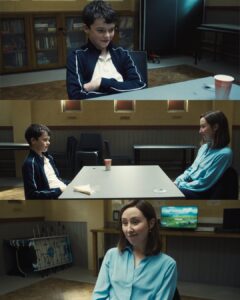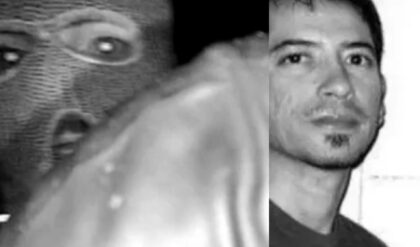
Asking for More Adolescence: A Craving for Tragedy or a Call for Deeper Truths?
When Adolescence stormed Netflix on March 13, 2025, its four taut, one-shot episodes—crafted by Stephen Graham and Jack Thorne—didn’t just captivate 24.3 million viewers in four days; they ignited a global conversation. The story of Jamie Miller (Owen Cooper), a 13-year-old arrested for murdering his classmate Katie Leonard, isn’t a whodunit—it’s a “why-done-it,” peeling back the layers of online radicalization, incel culture, and the pressures warping young men today. As of March 25, 2025, at 07:54 PM PDT, the series sits atop UK charts (The Guardian) and dominates Netflix’s global rankings in 75 of 93 countries (Collider), a Certified Fresh hit at 98% on Rotten Tomatoes. Yet, as fans clamor for a Season 2, a paradox emerges: asking for more Adolescence feels, in some way, like begging for another fictional murder to dissect—solved neatly by the credits, of course. But with its lens on a recurring epidemic in youth culture, could this mini-series, like Baby Reindeer before it, evolve into a multi-season force? The answer lies in its DNA—and Netflix’s playbook.

Stephen Graham, co-creator and star as Jamie’s anguished father Eddie, laid bare the show’s soul to Netflix’s Tudum: “One of our aims was to ask, ‘What is happening to our young men these days, and what are the pressures they face from their peers, from the internet, and from social media?’” He added, “And the pressures that come from all of those things are as difficult for kids here as they are the world over.” It’s not a one-off tale; it’s a diagnosis of a global malaise—knife crime, toxic masculinity, digital indoctrination—rooted in real UK incidents like Brianna Ghey’s 2023 murder (Daily Mail), though not tied to any single case (Radio Times). Season 1 ends with Jamie’s guilty plea and Eddie’s sobbing lament in his son’s room, a teddy bear in hand—a gut-wrenching full stop. Jack Thorne told Manchester Evening News, “I think Jamie’s story is finished… I don’t think there’s anywhere more we can take Jamie.” So why the hunger for more?
The catch is in the premise’s universality. Asking for Season 2 isn’t just craving another murder to solve—it’s a plea to probe deeper into an ongoing crisis. Season 1’s focus on Jamie’s descent, fueled by misogynistic chatrooms, left gaps: What of Katie’s family? What of other kids teetering on the edge? Graham’s mission—to spotlight “what’s happening to our young men”—screams for broader strokes. “It’s there, we can’t deny it,” Erin Doherty (psychologist Briony) told THR, calling the subject “terrifying.” A single murder, however harrowing, is a snapshot; the epidemic is a panorama. Fans on X echo this—“#Adolescence gives us a mirror to youth today… a must-watch” (@UpasonaB)—seeing it as more than drama, but a societal wake-up call.

Netflix green-lit Adolescence as a mini-series, much like Baby Reindeer, which stunned with its raw intimacy in 2024. Yet mini-series aren’t always finite. Look at Beef—launched in 2023 as a one-and-done feud between Ali Wong and Steven Yeun, it soared to critical acclaim (97% RT) and 34.1 million views in its first month (Variety). Netflix upgraded it to an anthology, announcing Season 2 in February 2025 with a new cast—Jake Gyllenhaal and Anne Hathaway—for a fresh standalone tale (Deadline). Why? High reception, cultural resonance, and a premise ripe for reinvention. The White Lotus, too, started as a 2021 HBO limited series, but its biting satire on privilege ballooned into a luxury anthology, Season 3 set for Thailand in 2025 (Elle). Both pivoted from singular stories to thematic frameworks—could Adolescence follow suit?
The case for an upgrade is strong. Adolescence isn’t tethered to Jamie alone; it’s about the “pressures” Graham flagged—peer dynamics, internet poison, societal failure. Season 1’s 6.45 million UK viewers in its first week (Manchester Evening News) and its topping of UK streaming charts (The Guardian) signal a hunger Netflix can’t ignore. Prime Minister Keir Starmer’s push to screen it in schools (Mirror) and Parliament debates on online safety it sparked (BBC) elevate it beyond entertainment—it’s a cultural artifact. Thorne’s reluctance—“We’re not the right people to tell the victim’s story” (Manchester Evening News)—hints at a pivot: why not explore Katie’s family, the Leonards, next? Or a new teen, a new town, a new tragedy born from the same digital rot?
Imagine Season 2: Sophie Leonard, Katie’s older sister, grappling with grief and rage, uncovering the chatrooms that ensnared Jamie—only to find they’re still thriving, luring others. Or a girl radicalized by a different online cult, flipping the gender lens. Graham could cameo as Eddie, a broken man warning new parents, tying it to Season 1’s echo. The one-shot style—each episode a breathless, unbroken plunge—stays, a technical flex honed in Graham’s Boiling Point (Cosmopolitan). Pasek and Paul’s musical flair from Snow White could even weave in a haunting score, though Adolescence thrives on silence’s weight. “We never thought it’d have such an impact,” Graham told the BBC (Straits Times); why not harness that?

The counterargument bites: another season risks diluting Season 1’s punch. Jamie’s arc—arrest to confession—is a closed loop, its power in its finality. “The final scene in Jamie’s bedroom is where it ends,” Thorne told Tudum (SheKnows), Eddie’s collapse a full-stop on a family’s ruin. Asking for more could feel like gawking at tragedy porn—another kid, another knife, another sobbing parent—just for closure by Episode 4. Christine Tremarco (Manda Miller) hinted on Lorraine (Mirror) that their story’s authenticity—tied to her and Graham’s real-life bond—might not stretch further. “Jamie’s story is done,” Thorne doubled down (Elle), wary of “diluting” the victim’s side they couldn’t fully tell.
Yet Netflix’s track record tempts. Beef’s anthology shift didn’t cheapen its first tale—it broadened the lens on human conflict. The White Lotus traded one resort for another, keeping its satire sharp. Adolescence could mirror this—each season a new case, a new “why,” dissecting youth culture’s festering sores. Graham’s pitch—“What are the pressures?”—is a wellspring: cyberbullying beyond incels, social media’s mental health toll, even radicalization’s flip side (girls lured into extremism). Katie’s perspective, as you suggest, could anchor it—her family’s fallout a raw counterpoint to the Millers’, dodging repetition by shifting the gaze.
The numbers back a gamble. Adolescence’s 24.3 million views in four days outpace Baby Reindeer’s early buzz (Radio Times), and its UK record—first streaming show to top weekly charts (Guardian)—screams demand. Collider notes it’s held the U.S. top spot for six days straight by March 24. If Beef’s 34.1 million in a month justified a Season 2, Adolescence’s pace—likely nearing 30 million by now—could too. Netflix loves a hit that doubles as discourse—13 Reasons Why ran four seasons on youth struggles (Elle); Adolescence could aim shorter, sharper, an anthology of two or three seasons.
Graham’s got pitches in him—he’s a dad whose “heart hurt” at real knife crimes (Daily Mail). “We wanted you to think, ‘My God,’” he told Elle, a mission unbound by Jamie. A Season 2 could probe a girl’s radicalization—misogyny’s mirror—or a rural teen’s isolation, knife swapped for arson. Katie’s family offers a victim’s lens, a narrative Thorne sidestepped but others could tackle. “It’s made me talk to my kids,” Thorne said (Manchester Evening News)—Season 2 could spark more.
The fallout’s the rub. A misstep—overly contrived tragedy, say—could tarnish Season 1’s gravitas. But Adolescence isn’t just a murder tale; it’s a warning siren. Asking for more isn’t begging for blood—it’s demanding answers to Graham’s question: “What’s happening?” Netflix upgraded Beef and The White Lotus for less cultural weight. With Adolescence shattering records and consciences, a Season 2—anthology-style, epidemic-focused—feels less like a stretch and more like a duty. “Hopefully,” as you muse, Graham’s plotting pitches. If not, fans on X—“A must-watch… think and tremble” (@milodi4z)—might just will it into being.

